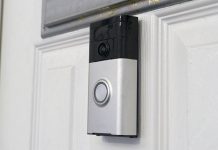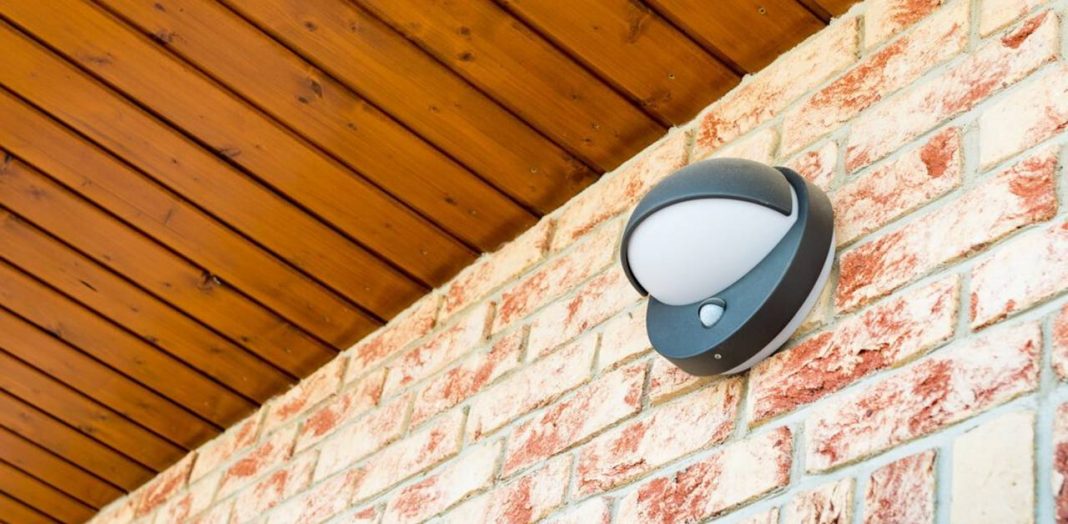UPDATED February 10, 2022 This piece has been updated to reflect the emergence of new technology


Christian Mathews Security Writer
Is it worth getting a light sensor for outdoor light? You bet. Other than the added convenience of lights switching on automatically when taking out your pet, as you come home, or even each time you open the garage door, light sensors for outdoor light have a much deeper security implication.
So if you’re thinking that leaving your outdoor lights on the whole night will keep you safe, then think again.
According to Safewise, data from the FBI indicates that 51% of burglaries that were reported happened during the day. Yes, you read that right. Burglars prefer working during the day, or at least whenever there’s light. As if that’s not surprising enough, in a surprising turn of events it turns out that burglars too fear the dark.
According to an article by Florida Atlantic University, switching off street lights in Bristol led to an astonishing 20% reduction in the crime rate in the area. In their defense though, without lights, burglars have a hard time finding their escape routes. In line with the above, it’s safe to conclude that lighting itself doesn’t prevent burglary or vandalism, rather proper lighting does.
1Why would you need a light sensor for outdoor light?
Convenience
Starting with the most obvious, light sensors for outdoor lights are very convenient.
You won’t need to grapple with a flashlight as you get back home from work after dark, or even have to rely on your car’s headlight to find your way. All you’ll have to do is walk up the path, and the lights will switch on automatically. Thanks to the sensors
Most of these outdoor lights with sensors are also easy to install and they require little to no maintenance. Another plus on convenience, as well as saving on possible professional installation and maintenance costs.
Savings on energy costs
Outdoor lights with light sensors switch on or off as needed i.e. switch off when the sun comes up, or once you’ve left the pool. Often, you may forget to switch the lights, and this may be unforgiving to your wallet when you’re sorting your electricity bills.
Additionally, most of the outdoor lights with sensors are LEDs (Light Emitting Diodes), meaning they use very little energy but are sufficiently bright.
LEDs are also very durable and long-lasting, which translates to more savings on your side when it comes to maintenance and replacement costs.
Better security
You might have had the notion that well-lit properties/homes are safer. Sadly, and even surprisingly this isn’t the case. The best way to protect your home/property would be to use proper lighting.
So what does this mean, and why is it important?
Proper lighting from a security standpoint refers to having proper illumination for your home/property, while also ensuring you don’t present your home as an enticing target to would-be burglars.
Too much lighting on your home/property gives burglars an easy time “casing” your home, and even help them plan escape routes. Outside lights with motion sensors act as active deterrents.
First, criminals won’t be able to easily case your home from afar, as they’ll have to come closer; and when they do, the lights will switch on, alerting you of a possible intruder.
If you’re not home, however, you’ll still have the advantage of surprising the burglar(s) with the lights switching on automatically, with the result of them abandoning their mission since they’ll think someone’s home.
2Motion sensor vs Light Sensor/Photocell Sensor for Outdoor Lighting
Light sensors are also referred to as photocells.
So how do they work?
A proper photocell/light sensor adjusts to switch lights either on or off by detecting ambient light. Light sensors aren’t programmed to switch lights on and off at set hours. Relying on changes in ambient light, light sensors can reliably switch lights on when it gets dark, and similarly switch them off during the day.
Light sensors for outdoor lights can however be programmed to control interior lights, as a deterrent to possible burglars. Motion sensors for the yard on the other hand work differently. They detect motion, simple.
In the case of motion sensors for outdoor lights, motion sensors detect motion, and if there are any proceeds to switch the lights on. Motion sensors are of two types, Active motion sensors, and Passive motion sensors.
Active motion sensors bounce off light, ultrasonic sound, and even radio waves. If the pattern is interrupted by say an animal, or a person the sensor gets triggered.
Passive motion sensors rely on infrared energy from people or just anything warm. Any movement towards the detection area triggers the sensors.
Which sensor is the best?
Both sensors are great individually.
However, there are better results when both sensors are utilized. The light sensor will not only adjust lights, but it can be modified to turn off the motion sensor and the entire system during the day.
3Motion sensor adaptor for outdoor light
The light sensor for outdoor light concept is great. But what if you’re all about aesthetics and you won’t, for any reason replace your outdoor lights with the hideous-looking outdoor light with sensors? (Most outdoor lights with sensors look good, and some do have great designs)
Well, with motion sensor adaptors for outdoor light, you can enjoy the aesthetics, with the functionality of light sensor for outdoor light.
For those whose outdoor lights don’t have sensors, but can’t for any reason get outdoor lights with sensors, you can easily install motion sensor adaptors to achieve this functionality.
And if you were worried about the wiring bit, some models don’t require any wiring. You’ll only need to screw the adaptor in place.
4Replacement sensor for outdoor light
If your sensor for outdoor light happens to break for any reason, you won’t need to get a whole outdoor light with sensors. You can get a replacement sensor for outdoor light, and easily install it to your outdoor light.
5Conclusion
That sums it up for light sensor for outdoor light.
And for those who are not aware of the term “casing”, it refers to when a burglar/criminal tries to assess whether or not to attack/rob your property. Mostly this involves checking whether anyone is home, by going through your mailbox, looking for overgrown lawns, or even uncollected deliveries on the door. It may also involve burglars looking through windows for any valuables worth stealing.
However, the one thing that screams no one’s home, is outdoor lights switched on both during the day and night.


















































